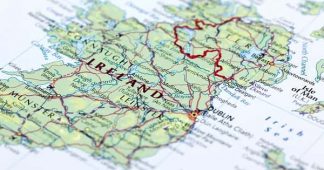Time to start thinking about what it might mean
Feb. 13, 2020
FOR MOST of the century since Ireland gained independence from Britain, control of the country has alternated between two parties. On February 8th that duopoly was smashed apart, when Sinn Fein got the largest share of first-preference votes in the republic’s general election. The party, with links to the Irish Republican Army (IRA), which bombed and shot its way through the 1970s, 1980s and 1990s, won with a left-wing platform that included promises to spend more on health and housing. Yet it did not hide its desire for something a lot more ambitious. “Our core political objective”, its manifesto read, “is to achieve Irish Unity and the referendum on Unity which is the means to secure this.”
Scottish independence has grabbed headlines since Brexit, but it is time to recognise the chances of a different secession from the United Kingdom. Sinn Fein’s success at the election is just the latest reason to think that a united Ireland within a decade or so is a real—and growing—possibility.
That prospect means something far beyond the island of Ireland. The Irish diaspora includes more than 20m Americans. Parties to ethnic conflicts across the world have long found common cause with Northern Ireland’s Roman Catholics, who contend that the separation from the south is an illegitimate vestige of 500 years of incompetent and often callous domination from London. Ireland, source of pubs, poets, playwrights and too many Eurovision songs for anyone’s good, has soft power to rival a country many times its size.











